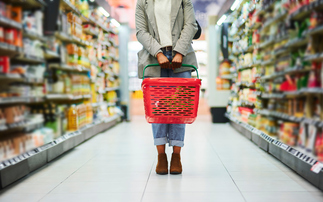Jamaica's Yohan Lee explains how climate change needs to be kept under two degrees to save his island and its inhabitants
Derrick Douglas had never known it so bad.
"For this particular period between 2014 and 2015, I think no one expected that sort of harsh drought that we experienced. We [farmers] were not aware that it would be so devastating," he said.
Douglas, 55, became a farmer after being a teacher for several years, in hope of earning more from his efforts. He cultivates a variety of crops and ground provisions, including scotch bonnet peppers, lettuce, pak choi, carrots, yams and cocoa - on a farm in McNie District in the ‘garden parish' of St. Ann.
The unpredictability of rainfall has made farming procedures more expensive. Drought conditions have eased but another extreme has set in.
"Moderate rainfall is very good for us but the excessive rainfall that we are having now affects us badly. It destroys the crops and the seeds that we sow. It drowns it by flooding the fields. We have to be over-dropping seeds because each time, it is either ‘dumped' or washed away because of soil erosion. The seeds are expensive."
As a result, he and other farmers have had to adjust their practices to reduce the impact of excessive rainfall on their yields, but his losses have still reached what he described as devastating levels.
"I lost five to six million dollars [Jamaican Dollars] because of the need to fetch, buy and procure water during the drought period that started in the middle of last year [June 2014] and continued in the last quarter of 2015," Douglas said.
Context of conditions
 Annually, Jamaica struggles with drought conditions that last longer with each following year. This has resulted in an increased presence of water tanks. Douglas shared that he and other farmers use black tanks to store water to irrigate crops.
Annually, Jamaica struggles with drought conditions that last longer with each following year. This has resulted in an increased presence of water tanks. Douglas shared that he and other farmers use black tanks to store water to irrigate crops.
That has created a new problem. The Ministry of Health has found that tanks, especially those left uncovered, have acted as facilitators of mosquito-borne diseases such as Chikungunya and Dengue Fever.
The lack of water has also caused an increase in the Hand, Foot and Mouth disease in children. And fires, lasting for days due to dryness and heavy winds, have destroyed several acres of major export crop, Blue Mountain coffee this year.
As territories in the Caribbean experience extreme changes in aspects of weather, including wind speed, temperature and more clearly, rainfall - stakeholders are charged with recognizing the need for action and solutions.
Minister of Foreign Affairs and Trade, Senator AJ Nicholson, recently raised concerns about the fate of Caribbean states, if climate change is not adequately addressed.
Speaking at the 70th Session of the United Nations General Assembly Debate, Nicholson said he believes the issue being faced by countries such as Jamaica is "an existential one," making reference to various manifestations of climate change in recent times.
Goal dilemma
Dr. Michael Taylor from the University of the West Indies, Mona Campus' Climate Change Studies Group, said carbon dioxide emissions have increased by approximately 40 per cent, while methane emissions climbed by 150 per cent globally.
It means, he explained, that the world's temperature has gone up by at least zero point eight per cent - that is, about one degree celsius.
With this data the UN's International Panel on Climate Change - the world's leading authority on global warming - have used models with scenarios or storylines of future development to predict the possible effects on the climate.
The climatologists have agreed that a further temperature increase is certain, and carbon dioxide discharges must decrease by the year 2020. That means it is ideal to limit the increase to one degree celsius and preventing any increase beyond that.
Taylor points out, however, that international climatologists have said a goal of two degrees celsius is significantly more realistic. They contend that it is senseless to reach for less.
"Global climate change models do not support increases less than two point five [degrees celsius]. But already we have seen the impact of an increase under one degree on health and agriculture," Taylor explained.
According to Taylor's findings, the region has experienced 20 per cent more warmer days since 1960. The character of rainfall has also shifted. Rainfall is more sporadic and moves between extremely heavy and extremely insufficient. It has also been found by the Meteorological Centre of Jamaica that the nature of rainfall has also changed. The region receives rainfall as a result of systems outside the area while drier conditions prevail within.
Jamaica has since agreed with the Alliance of Small Island States (AOSIS) that any goal above one point five degrees celsius is unsatisfactorily motivated. Such a goal is also considered to be neglecting of the Caribbean experience to this point. Larger, developed countries would see it through different lenses.
Tangible effects
At the regional level, Caribbean territories are expected to experience an average of 25 to 30 per cent increase in surface drying. However, that percentage will vary from island to island. It is anticipated that Jamaica, for instance, will experience an uncharacteristic 50 per cent drying that tends to impact the already conflicted harvested sources such as major dams and reservoirs.
These changes are particularly critical to the region because of the nature of development. Development in the region is still largely linked to agriculture and tourism. Both are major of sources of national income that are, by nature, almost completely dependent on the environment. Any major shifts in weather severity and patterns could mean a loss of gross domestic product (GDP).
Douglas said he and other farmers had to be creative in finding ways to provide water for crops because of dry conditions during the last drought.
"We did irrigation that is manual [as a result]. We [normally] use the pump but we [have] had to truck water to various points; use our heads or donkeys to carry the water to different positions on the farm."
He shared that with these setbacks in the cultivation process that every farmer has to go through, business suffered. "We could have gone further [earned more] with what was sown [on the first instance] but continually dropping seeds sets us back because we don't have enough [resources]."
According to the Planning Institute of Jamaica (PIOJ), Jamaica has been losing ground with regard to GDP. As far back as 2006, seven point three per cent of Jamaica's GDP was lost as a result of severe impact of climate change. This figure continues to increase.
The United Nations Framework Convention on Climate Change (UNFCCC) points out that much of the impact from climate change will impact sea and ocean levels. This is caused by the annual El Nino Southern Oscillation weather event, which now lasts longer because of drastic shifts in weather.
Douglas noted that he could tell that the El Nino period extended because of the severity of dry conditions in the area his farm is located.
Climate change is primarily problematic because the majority of populations of small-islands states live along the coastline, and these developing states share a more intimate relationship with the surrounding water bodies.
Since 90 per cent of small island states are located in the tropics, they are seasonally exposed to tropical storms and hurricanes, floods, landslides and droughts. Climate change may reduce or disrupt rainfall but when it rains, it does heavily.
Hurricane activities also account for some loss to the island's ailing GDP. In 2001, damage and loss of productivity experienced during Hurricane Michelle was responsible for zero point eight per cent loss of GDP. Three years ago, in 2012, that figure increased by zero point one per cent.
Gender and climate
The UNFCC states that there are at least fifty million people living on small islands. And as the United Nations entity for Gender Equality, UN Women points out, the differentials between males and females extend into how they are both impacted by climate change.
They are impacted in different ways because of unique realities. Men and women who live in rural areas and are dependent on natural resources for survival also tend to be most vulnerable to the various natural disasters that beset the island.
But as the United Nations Development Programme (UNDP) points out, women are generally more vulnerable as they have less access to resources, less mobility and are generally absent from decision-making processes, excepting in the household.
The most recent Economic and Social Survey shows that single mothers head 46.4 per cent of Jamaican households and 53 per cent have no male presence. It means there are many communities that depend on the resourcefulness of women and a failure to provide affects dependents.
However, as a male farmer, Douglas is also the head of his household, which is dependent on the money he earns. The amount of money earned is dependent on the size of the yield. Douglas' major challenge is therefore with regard to ensuring that he has enough crops to deliver to those who depend him for farm-grown food items.
Call to action!
Gerald Lindo, a representative from Jamaica's Ministry of Water, Land, Environment and Climate Change, said it has been clear for some time that the stymied response to climate change is "bound up in the understanding of development."
"The world's definition of development is informed by practices of fossil fuel burning and rapid industrialization," Lindo said with an observable urgent appeal.
Lindo further reasoned that "the impacts of climate change is not the same for all countries," though some countries play a greater role in the destruction of the natural environment. He also highlighted China and the United States of America as major players in the lucrative but unsustainable business of nonrenewable energy usage.
Lindo reiterated the point that warming should be limited to temperatures below an increase of one point five degrees celsius. But for this to happen, there has to be a "legally binding agreement that is transparent, adheres to science, ensures livelihood and results in stronger review systems," he said.
President of the United States of America, Barack Obama, recently echoed these sentiments while speaking at the opening day of climate talks in Paris.
Lindo later instructed that any solution agreed upon has to also be applicable to all countries, but sensitive to the differences of each.
It is his belief, based on current patterns, that Jamaica and other Caribbean territories will have experienced ‘climate departure' by the 2030 - which coincides with Jamaica's National Development Goal initiative, Vision 2030.
Ingredients to adapt
Climate departure refers to a phenomenon in which the climate of a region drastically moves outside what has been obtained historically, thus exposing it to unexpected anomalies in nature.
Dr. Orville Grey, the technical officer in the government's climate change in the region also noted that government policies and programmes are also necessary, as it relates to forestry management; replacing non-renewable energy sources with renewable energy sources; stimulating equitable distribution of resources; and making development goals gender sensitive.
Douglas said he believes the Ministry of Agriculture and Fisheries should play a significant role in combating climate change. But, he explained, the Ministry tends to only make empty promises. He also highlighted that several infrastructure were not in place.
"The ministry has claimed that they would help us farmers who the drought has severely impacted, by giving us black tanks and by trucking of water to us. Well, some of us don't have the capital resources so we are dependent on them to help us," Douglas continued.
Many farmers are still waiting on assistance
Douglas said farmers in his community are not well prepared and help is not readily available. He estimated that the level of readiness among farmers in McNie District is 40 to 60 per cent.
Larger countries such as China and the United States that have pledged to help the developing world through funding, have yet to fulfill their promise with regard to the Millennium Development Goals (MDGs).
Much will depend on how Caribbean nations pull together and share experiences to adapt to changing conditions.
Sustainable development, a new age mantra for using resources to meet the needs of current generations without compromising the ability of future generations to do the same, is the essence of the climate change movement.
But above all, the small islands need the world's biggest polluters to clean up, said Dr. Taylor. Jamaica and other small-island developing states need temperature rises of below "one point five [degrees celsius] to stay alive" as a prosperous nation, he said.
This story was sourced through the Voices2Paris UNDP storytelling contest on climate change and developed thanks to Edward King from Climate Home







